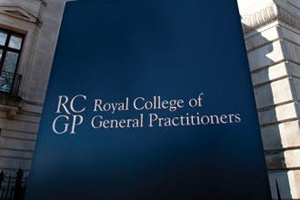RCGP to consult members on assisted dying stance

The RCGP will consult its members on whether they believe there should be a change in the law on assisted dying.
The decision about assisted dying, which is currently opposed by the College, was made by the RCGP’s governing council, at their meeting on Saturday 22nd June.
Assisted dying is currently illegal in the UK, where doctors found guilty of helping someone to die can be jailed for up to 14 years.
All 53,000 members will be given the chance to share what they think the RCGP’s stance should be, and were last given this opportunity in 2013, then 2005. The latest result, revealed in February 2014, was that the College should not change its stance.
RCGP chair Professor Helen Stokes-Lampard said: ‘Assisted dying is an incredibly emotive issue that polarises opinions.
‘It has been nearly six years since we asked our members as to whether we should support a change in the law on assisted dying – since then, it is possible that views within our membership have shifted.
‘As such, RCGP Council has decided that the time is right to conduct this consultation, and we will be issuing further details of how we will do this in due course.’
At the time of the College’s last consultation on this topic, a Pulse survey showed that more than two thirds of GPs supported a change in stance. However, 77% of the 1,700 RCGP members who responded to the consultation said that the College should maintain its opposition.
This issue has created significant further discussion among GPs. In 2013, former RCGP chair Professor Clare Gerada wrote in the British Journal of General Practice that GPs should ‘let society decide’, while Labour peer Lord Charles Falconer told Pulse that ‘RCGP should take a neutral stance’. The GMC emphasised that ‘it is a criminal offence for GPs to encourage a person to commit suicide’.
Earlier this year, a Royal College of Physicians’ poll of members led to them adopting a neutral stance on assisted dying, dropping their 13-year opposition.
Its president Professor Andrew Goddard told the BBC: ‘It is clear that there is a range of views on assisted dying in medicine, just as there is in society.
‘We have been open from the start of this process that adopting a neutral position will mean that we can reflect the differing opinions among our membership.’
Chief executive of Care Not Killing, an alliance of organisations opposed to the legalisation of physician-assisted suicide in the UK, Dr Gordon Macdonald, claimed that ‘most doctors didn’t want a change in the law on assisted suicide or euthanasia’.
The BMA is opposed to assisted dying, having rejected motions calling for it to adopt a neutral position and never asking their membership of 158,000 doctors for their views on it.
However, in evidence of growing support for assisting dying among the general population, the campaign group My Death, My Decision recently found that more than 90% of their poll respondents believe it should be legalised for the terminally ill, and a 2015 study by Dignity in Dying concluded that 82% of the public supported Lord Falconer’s proposed change in the law.
Pulse July survey
Take our July 2025 survey to potentially win £1.000 worth of tokens











